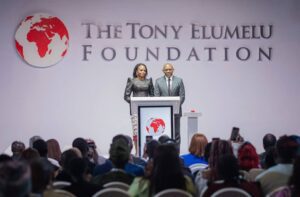
In the third quarter of 2023, 1.9 million youth aged 15 to 35 years in Ghana were not in education, employment, or training (NEET) according to the 2023 Annual Household Income and Expenditure Survey (AHIES).
Females (1.2 million) predominate the youth NEET compared with males (715,691).
One in every three youth NEET resided in the Greater Accra Region, with over half a million (565,360) youth not engaging in any of the three activities. Four other regions, besides Greater Accra, also recorded youth NEET over 100,000: the Ashanti (352,503), Central (155,171), Eastern (143,601), and Western (137,865) regions.
The youth NEET rate for females (21.0%) was six percentage points higher than for males (15.0%). Greater Accra had the highest NEET rate with a little over a quarter (26.9%) of the population 15 to 35 years not engaged in education, employment, or training. North East
Region (19.5%) had the second highest rate with about one in five youth NEET. All regions except Bono East (8.3%) had NEET rates in double figures. The NEET rate was higher for youth in urban areas (20.6%) than for rural residents (15.0%).
When comparing Q3 2023 with the same period in 2022, NEET fell by 5.9 percentage points from 24.1 to 18.2 percent. In all, the total number of youth NEET decreased by almost half a million (462,998) over the period. Between the third quarters of 2022 and 2023, the percentage of youth NEET declined in all regions except Greater Accra which experienced a marginal increase of 0.5 percentage points. Greater Accra was the only region to record increases in youth NEET for both males and females between Q3 2022 and Q3 2023. In the other 15 regions, youth NEET declined for both males and females except for Western which recorded a divergent trend by sex: a 5.9 percentage point decrease for males and a 0.3 percentage point increase for females.
World Youth Skills Day is commemorated annually on 15th July to highlight the importance of providing youth with the relevant skills for employment, decent work, and entrepreneurship. The theme for 2024 is “Youth Skills for Peace and Development”.
About the Ghana Statistical Service
The Ghana Statistical Service (GSS) provides comprehensive, reliable, quality, relevant, accurate, and timely statistical information to guide national development as stipulated in Section 3 of the Statistical Service Act, 2019 (Act 1003). The organisation’s vision is to be the trusted provider of official statistics for good governance. Its mission is the efficient collection, production, management, and dissemination of quality official statistics based on international standards, using competent and motivated staff for evidence-based decision-making, in support of national development.
The Statistical Service produces monthly and quarterly data on important economic indicators such as inflation, Consumer Price Index, Producer Price Index, and Gross Domestic Product. GSS also regularly generates periodic population, housing, demographic and economic data at the locality, district, and national levels from routine surveys and censuses. The statistics generated by GSS can be utilised by a wide crosssection of users including public sector, businesses, academia, civil society organisations and development partners.
GSS for the first time has developed an online database for accessing disaggregated census statistics.






